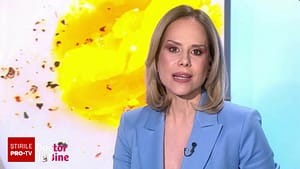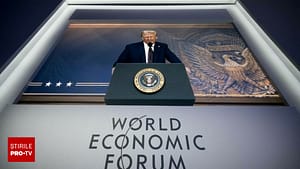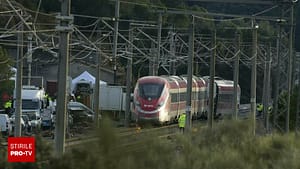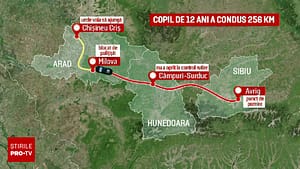FinMin:Crisis is also an opportunity to bring about long-awaited changes, to streamline administration and restructure state-owned companies
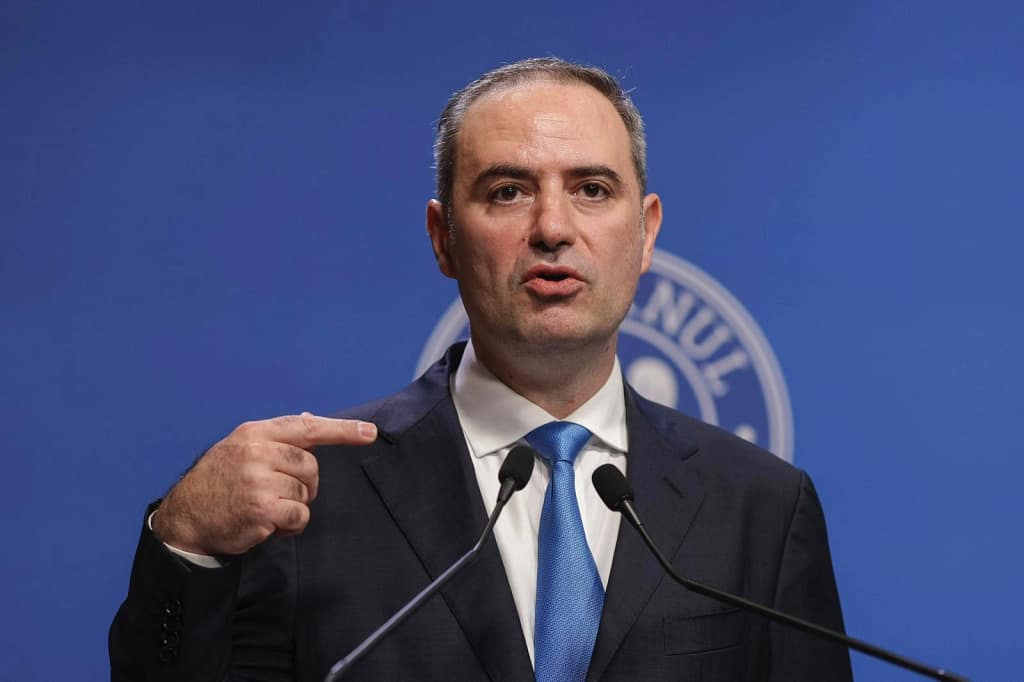
The Minister of Finance, Alexandru Nazare, led the Romanian delegation to the Annual Meeting of the IMF and the World Bank Group, in Washington DC, between October 14-18, 2025, according to a press release from the institution.
The agenda of the visit included numerous events and high-level meetings, to strengthen the economic partnership with the United States of America. The discussions focused on promoting Romania’s progress in fiscal consolidation and on positioning the country as a regional economic hub and factor of stability in Southeastern Europe. The Minister of Finance reaffirmed Romania’s role as a pillar of stability for transatlantic security, through prudent fiscal policies and by ensuring a predictable environment for investment.
The direction of capital in strategic areas for current American policy and transatlantic cooperation in energy, infrastructure, technology and the reconstruction of Ukraine were the main topics of interest for the American interlocutors.
According to the cited source, one of the most important meetings of the Romanian Minister of Finance in Washington was with President Trump’s Representative for Global Partnerships, Paolo Zampolli, and the United States Treasurer, Brandon Beach. Alexandru Nazare discussed with both dialogue partners the strategic opportunities for American investments in the Romanian economy, with a particular focus on energy and infrastructure.
„I conveyed, both to President Trump’s emissary and to the United States Treasury, the message that Romania aims to strengthen the economic partnership between the two states through strategic and consistent investments, which will ensure clear benefits to both parties. Also, that Romania is prepared to advantageously showcase its economic offer by changing its strategy to be proactive in attracting foreign investments,” Nazare said in a statement.
The minister also had a high-level meeting with representatives of the Trump administration.
In the discussion with Jarrod Agen, executive director of the US National Energy Dominance Council, the Finance Minister conveyed Romania’s ambition to become a regional energy hub, through strategic projects such as Neptun Deep, the retrofitting of the Cernavoda Nuclear Power Plant reactors, as well as by increasing the volumes of gas transported through the Vertical Gas Corridor project, thus participating in the consolidation of regional energy security. „Romania is not just a link in the so-called Vertical Corridor, but is a co-initiator of this complex project which in the coming period may become an important pillar of energy security in South-Eastern Europe,” the press release states.
The discussions with the President of Exim Bank US, John Jovanovic, specifically aimed at identifying new bilateral economic projects and the successful implementation of those currently underway to strengthen the Romanian-American partnership in the area of ??energy and investment.
The Romanian delegation proposed strengthening the relationship with Exim Bank US by building a portfolio of projects of common interest aimed at energy security through the involvement of American companies in major investment projects.
An important topic on the agenda was also the vertical corridor, namely Romania’s role in increasing LNG transport capacity in the region.
According to the press release, Romania’s collaboration with Exim Bank US has evolved significantly in recent years, focusing on strategic areas such as nuclear energy, infrastructure and regional energy security. Initiated through a MoU (Memorandum of Understanding) agreed during the first Trump Administration and intended to finance bilateral projects in the energy and infrastructure fields, the US Exim Bank’s financial support for civil nuclear projects in Romania – intended for both the construction of units 3 and 4 at Cernavoda, as well as the SMR project at Doicesti – is estimated at approximately $7 billion, of which $98 million has already been approved.
Alexandru Nazare also had a meeting with Ben Black, the CEO of the U.S. International Development Finance Corporation (DFC), just a few days after his official confirmation in office, which underlines the interest of American partners in the dialogue with Romania. DFC is the United States federal agency that finances strategic American investments in emerging markets.
The discussions focused on the potential for joint investment projects, especially in the energy and infrastructure fields, and the opportunities through which Romania can attract American capital. At the same time, the Minister of Finance extended an official invitation to the DFC representative in Bucharest, to expand the dialogue in Washington.
The Minister of Finance also met with representatives of the World Bank, Antonella Bassani, Vice President, and Eugene Rhuggenaath, the institution’s Executive Director, with whom he discussed projects and financial instruments for energy, health, infrastructure, and the sovereign wealth fund for the capital market.
In the meeting with Antonella Bassani, Nazare stressed the need to identify, together with WB experts, the appropriate measures to stimulate economic growth starting with 2026, focusing on simplification, deregulation and reorganization of state aid schemes. Also, another area of ??interest in collaboration with the Bank is agriculture, where Romania can become a Hub for Eastern Europe by using new technologies to support growth. In this regard, Bassani announced his intention to participate in a workshop dedicated to the relaunch of the Romanian economy, organized by the Ministry of Finance, in partnership with the World Bank, in Bucharest, in December. The event will also be attended by experts selected by the World Bank, as well as members of the team coordinated by Mario Draghi, which prepared the report on EU competitiveness.
Other topics of discussion focused on making the absorption of European funds more efficient, supporting SMEs, using portfolio guarantees that do not affect the deficit, with the aim of injecting capital into the private sector and accelerating economic recovery, as well as Romania’s role in the reconstruction of Ukraine.
At the same time, the subject of Romania’s application to host the Black Sea AI Gigafactory, with the support of World Bank experts, was also addressed. The project could transform Romania into the epicenter of Artificial Intelligence development in the region, providing an innovative infrastructure for Romania, as well as for Turkey, the Republic of Moldova, Ukraine or Bulgaria.
Makhtar Diop, General Manager of IFC (International Finance Corporation, member of the WB Group, n.r.), confirmed during the meeting with the Romanian delegation the institution’s support for the development of the Romanian private sector by financing production, sustainable infrastructure projects and the capital market, by increasing the volume and diversifying the allocated financing.
IFC aims to double its EUR 2.5 billion portfolio in the next period for Romania, with the aim of supporting the country’s ecological transition, digital connectivity, and integration into global value chains.
The Minister of Finance, Alexandru Nazare, also held discussions with Junaid Kamal Ahmad, Vice President of the Multilateral Investment Guarantee Agency (MIGA), a member of the World Bank Group. The focus was on the development of credit enhancement guarantee instruments, essential for mobilizing private capital and reducing risks in priority projects.
Discussions also focused on MIGA’s support for structuring guarantee solutions in critical areas. These include streamlining state aid schemes and developing guarantee mechanisms for Romanian exporting companies seeking to expand and contribute to economic reconstruction in Ukraine and the Republic of Moldova. The possibility of collaboration between MIGA and the Investment and Development Bank (IDB) through the use of portfolio guarantees to support the SME sector was also discussed.
The collaboration between Romania and MIGA will be consolidated through the visit to Bucharest of the MIGA Vice President, scheduled for October 27-29.
The discussions of the Minister of Finance with Jeroen Clicq, IMF Executive Director, and Alfred Kammer, Director of the European Department of the international financial institution, focused on the progress of fiscal consolidation and the objectives of the Bucharest Government to increase the volume of investments, in parallel with respecting the deficit reduction targets.
During the meeting with the representative of the Fitch rating agency, Erich Arispe Morales, director for the Europe region, Alexandru Nazare highlighted the improvement of the current fiscal situation and the deficit target set by Romania for 2025, as well as the objective of gradually reducing it in the coming period, through structural fiscal consolidation measures. In view of the agency’s next reports and the improvement of Romania’s investment rating, the Minister of Finance highlighted the main measures targeted by the Government in Bucharest: implementing fiscal consolidation, prioritizing projects with significant progress, accelerating the absorption of European funds, and digitalizing the administration.
Also, during the meeting with the President of the EBRD, Odile Renaud – Basso, the Romanian official highlighted the role of the EBRD as a strategic partner for the implementation of reforms in Romania and investments in resilient infrastructure, green transition, capital market development and private sector competitiveness. The Minister of Finance stressed the priority of accelerating economic growth for 2026 and finding out-of-the-box solutions to support the private sector, improve lending and attract more foreign direct investment.
Another topic of interest was the development of public-private partnerships, as well as the restructuring of state-owned companies, where the Bank can bring expertise in the selection and preparation of PPP projects, respectively in the reformation and efficiency of companies.
With EBRD support, Romania is promoting regional integration of capital markets, new financial instruments and increased access to finance for SMEs and innovative sectors.
„Romania is positioning itself as a strategic pillar of transatlantic economic and security cooperation, promoting American investments, fiscal discipline and transparency. In Romania, we have over 900 American companies, which are extremely important for the development of our country. Romania encourages investments, we are open to new businesses and we have a renewed approach to attracting foreign investments – we are more open, we are proactive. We have not been efficient enough in promoting our advantages in terms of logistics, energy and human capital. Our strategic advantages are major, which is why our ambitions are high”, the minister conveyed to American investors during an intervention at the United States Chamber of Commerce.
Romania is strengthening its economic partnership with the US through infrastructure, energy and technology projects, including projects such as Neptun Deep or projects to develop the digital economy and artificial intelligence (AI). Romania also plays a central role in the stability of Eastern Europe and the reconstruction of Ukraine, acting as a logistical and humanitarian hub and facilitating regional integration through the Black Sea and Danube corridors and the Three Seas initiative, he stressed.
At the Atlantic Council and the Hudson Institute, two of the most influential American think tanks in the field of foreign, economic and security policy, the Minister of Finance emphasized Romania’s strategic role for the economic growth of the entire Eastern European region, through a mix of efforts in attracting investments, developing trade activities and physical and digital infrastructure, to ensure regional stability and competitiveness.
„The crisis is also an opportunity to bring about long-awaited changes, to streamline the administration, restructure state-owned companies and rethink investment prioritization. We are in a position to change the way we act at European level. We must be much more active than we have been in the past, we must fight for the issues for which we have arguments. This change in attitude will also be reflected in the way economic growth will be projected in the coming years,” Nazare declared.
In the context of the Annual Meetings of the IMF and the World Bank, the Minister of Finance also had discussions with the Ministers of Finance of Austria and the Netherlands, regarding support in the negotiations that will take place within the Committee on Fiscal Affairs regarding Romania’s accession to the OECD.

